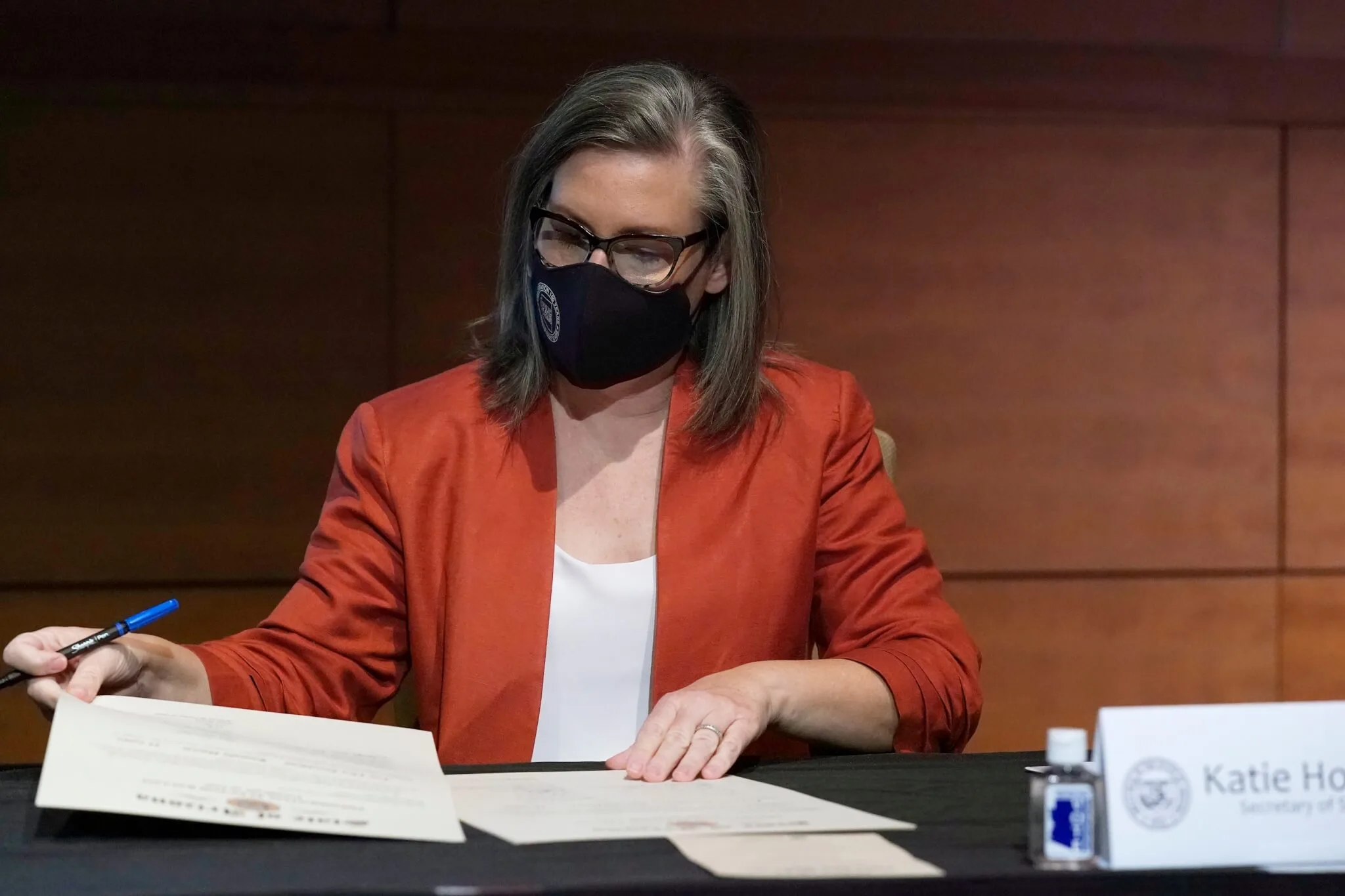
AP Photo/Ross D. Franklin, Pool
Two Democrats and three Republican lawmakers have thrown their hat into the ring to be Arizona’s new chief elections officer.
Next year, Arizona voters will elect a new secretary of state to help keep elections safe, secure, and accessible. Candidates have already begun announcing their campaigns during a year when the results of the 2020 election continue to be challenged by some.
Arizona state Representative Shawnna Bolick became the third Republican to announce a bid for secretary of state on Tuesday.
Bolick’s announcement will put her in a Republican primary against at least two other Republican lawmakers: state Sen. Michelle Ugenti-Rita and Rep. Mark Finchem.
House Minority Leader Reginald Bolding is also set to face off in a Democratic primary against former Maricopa County Recorder Adrian Fontes.
In addition to being Arizona’s chief elections officer and second in command to the governor, the secretary of state oversees several aspects of the state’s elections, including certifying each election and encouraging participation in the process and registering more voters.
RELATED: Arizona’s Chief Elections Officer Has Received Multiple Threats in Recent Months. She’s Not Backing Down.
In recent months, Arizona’s current Secretary of State Katie Hobbs has also repeatedly pushed back against unsubstantiated claims of voter fraud related to the 2020 election. She has received numerous threats to her safety and even been assigned security details in the wake of the threats.
Hobbs announced last week that she will not seek re-election to the position and will run for governor in 2022.
Here’s what to know about the candidates who have announced their campaigns.
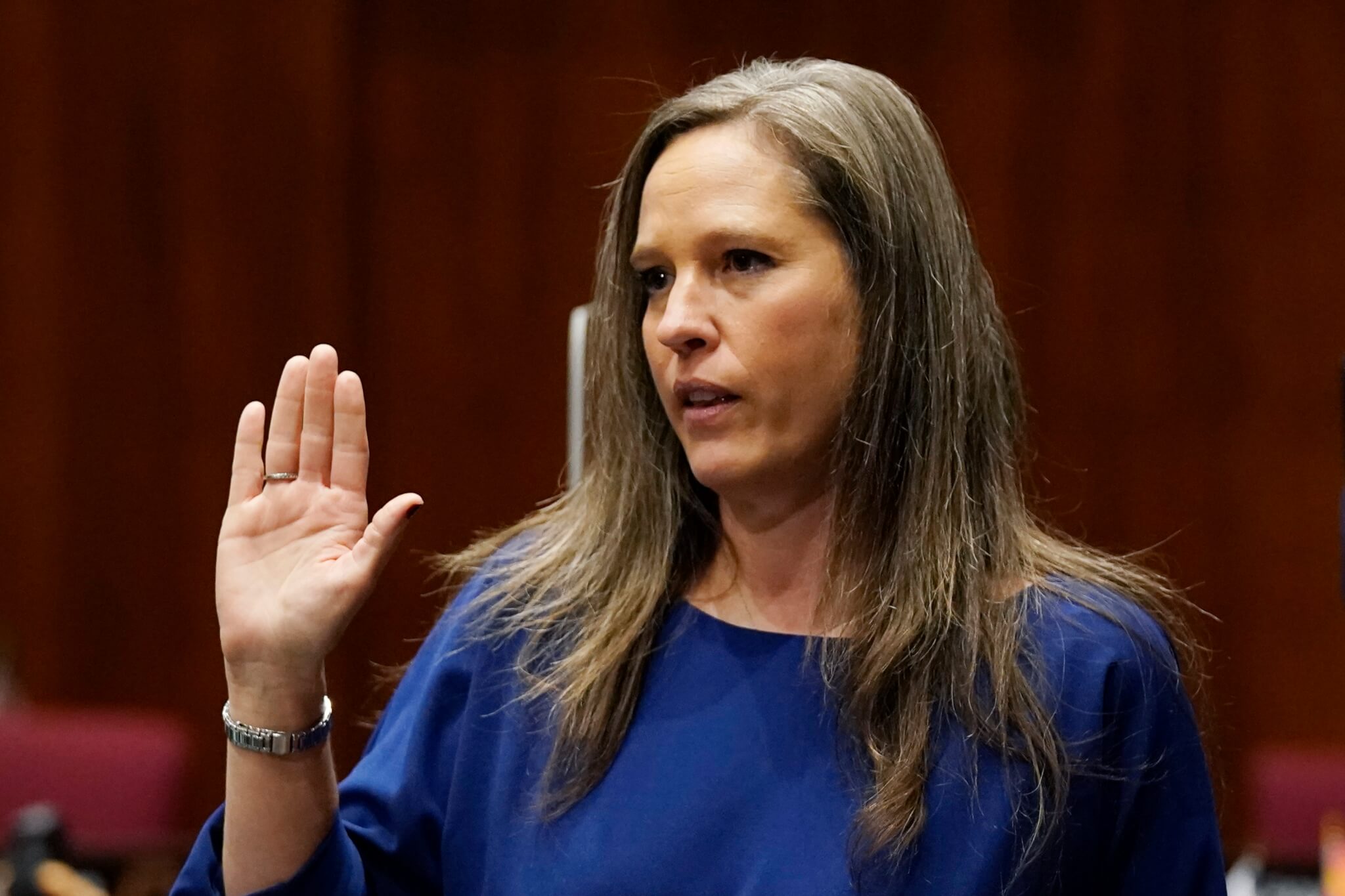
Shawnna Bolick
Bolick has served in the House of Representatives since 2019, representing Glendale and Phoenix, after making two unsuccessful bids for office.
Bolick has a master’s degree from American University and has lived in Arizona since 2001, where she has worked as a consultant for the Arizona Charter School Association and the Goldwater Institute. She was appointed to the Arizona State Board of Education’s Academic Standards Development Committee and Arizona’s Early Childhood Education and Health Board by Gov. Doug Ducey.
In a press release announcing her run, Bolick said failed leadership had resulted in rampant distrust in the state’s elections.
“It’s time to secure our elections once and for all and de-politicize the office of Secretary of State,” Bolick said. “We must get to work immediately restoring trust and fixing the problems that, quite frankly, have been there for some time.”
Following the 2020 election, Bolick signed onto letters to then-Vice President Mike Pence and to Congress urging them to not accept the results of the 2020 election.
Bolick also sponsored a bill that would have given state lawmakers the power to override election results, telling The Arizona Republic it was a “good, democratic check and balance.”
The bill received criticism, including from current Secretary of State Katie Hobbs, for being an overreach of power.
“It’s time for a Secretary of State who goes to work for you and does the job you sent them to do,” Bolick said in her press release. “You need to have confidence in your elections again…And you should be able to trust that the person one step away from the Governor’s office has the character and temperament to be trusted whatever comes.”
Reginald Bolding
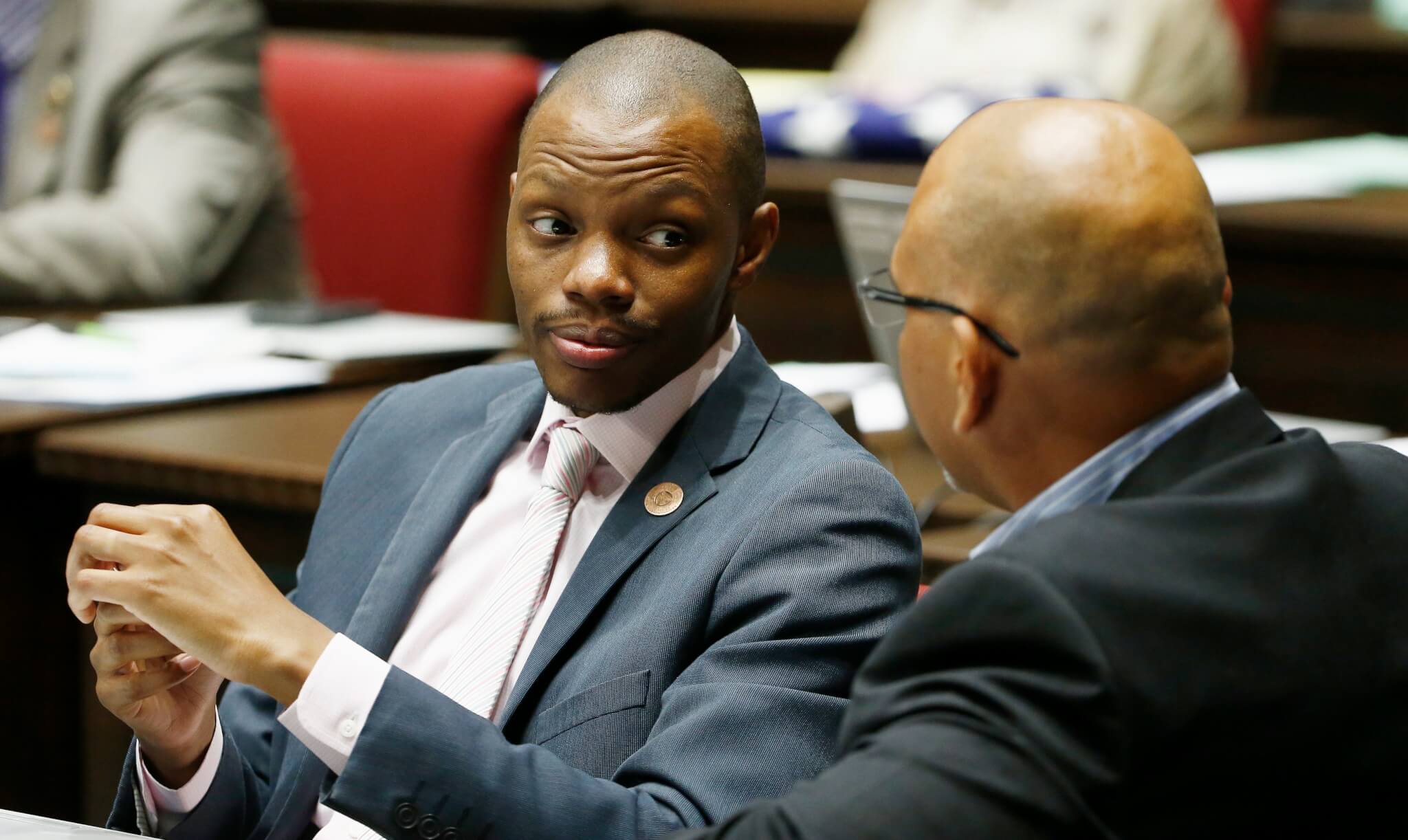
Bolding currently serves as the Democratic House Minority Leader in Arizona’s House of Representatives representing downtown Phoenix, south Phoenix, and Laveen. He was elected to the legislature in 2014 at just 28 years old.
On Tuesday, Bolding had secured endorsements from several elected officials, including the mayors of Tucson, Tempe, and Flagstaff.
Before coming to the legislature, Bolding was a special education teacher in the Roosevelt School District in south Phoenix. He also helped found two voting rights advocacy groups: the AZ Coalition for Change and Our Voice Our Vote.
More recently, Bolding has gained national attention for his stances in the legislature related to voting rights.
Earlier this year, Bolding spoke in opposition to a controversial GOP-backed bill that could purge thousands from Arizona’s permanent early voting list if they do not cast a ballot early in two consecutive election cycles.
Bolding pointed out the bill would disproportionately affect Black and brown communities’ access to voting. Afterward, Republican Rep. Travis Grantham used the phrase “colored” to refer to those same communities. It was the second time this legislative session that GOP lawmakers have used the offensive term after testimony given by Bolding.
RELATED: Arizona Gov. Doug Ducey Signs Controversial GOP-Backed Bill That Could Purge Thousands from Early Voting List
Grantham also referenced legislative procedural rules in an attempt to justify why Bolding should be “sat down” and “shouldn’t be allowed to speak.”
“Let me be clear,” Bolding said later on Twitter. “I did not and will not sit down. Not will I ever stop speaking out for the communities that the GOP wishes to disenfranchise from our democratic process.”
Bolding has also been a vocal critic of the audit of the 2020 election results in Maricopa County, which was commissioned earlier this year by the state’s Republican-controlled Senate to “ensure transparency and integrity” in the election, but has since been plagued by concerns of mismanagement, lack of transparency, and lapses in security.
On Monday, Bolding called the audit a sham.
“I won’t back down to conspiracy theorists trying to destroy fair and safe elections,” he said.
Adrian Fontes
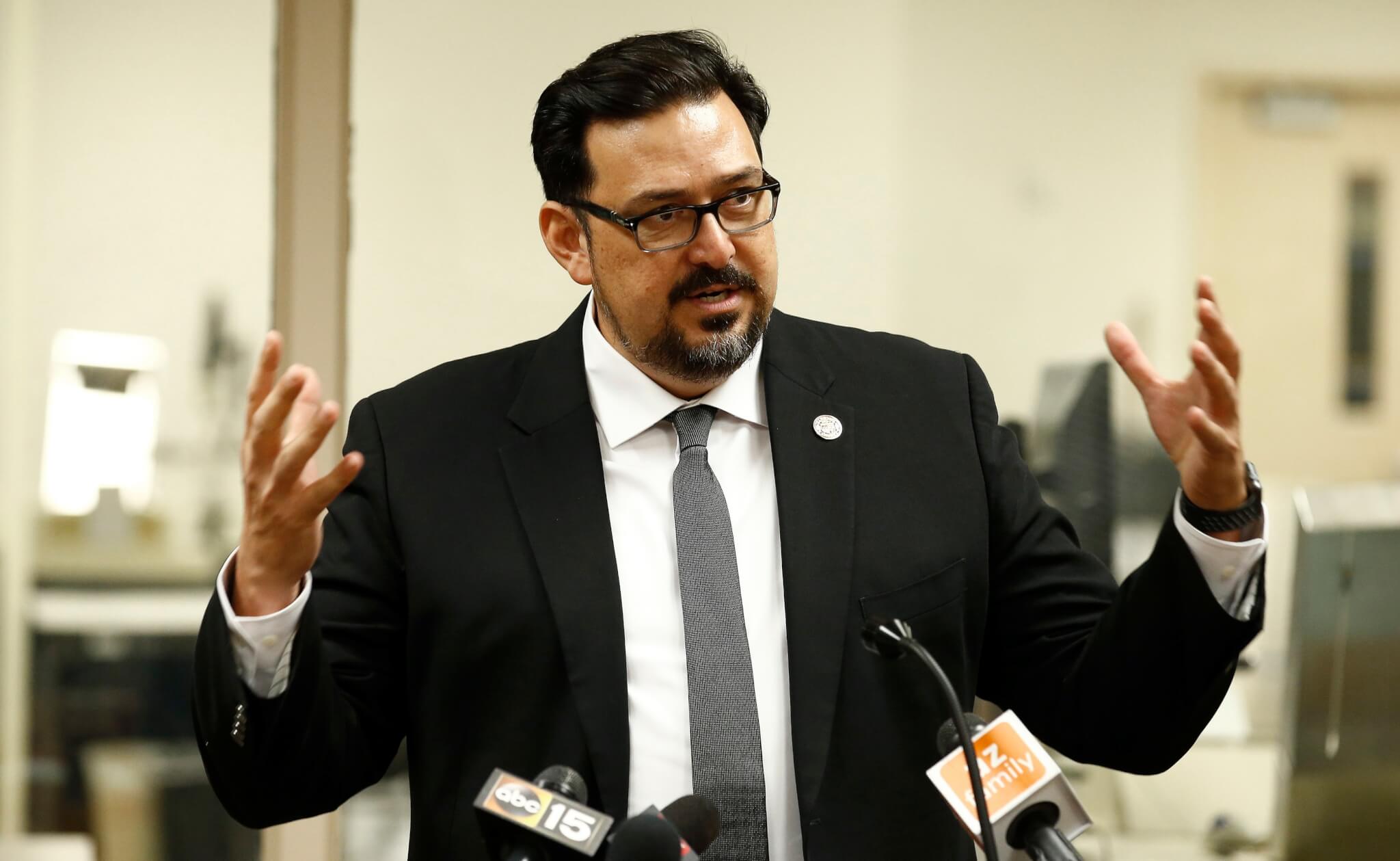
Democratic former Maricopa County Recorder Adrian Fontes was elected to the office in 2016, defeating Republican incumbent Helen Purcell, the longest-serving recorder in the county’s history. Fontes ran on a platform of restoring voter trust, making the office more secure, and improving voter outreach.
RELATED: Former Maricopa County Recorder Adrian Fontes Announces Bid for Secretary of State
In a 17-second video posted to Twitter Friday, Fontes said Arizona needs public officials “ready to do the job on Day 1.”
Fontes has also criticized the Senate’s audit of election results, the same election in which he lost the race for recorder by roughly 4,500 votes last November.
The audit has drawn rebukes from Republican leaders on the Maricopa County Board of Supervisors, including from Stephen Richer, who defeated Fontes in November.
During Fontes’ four years as recorder, he expanded options for early voting, cut down on long wait times, and made voting more accessible to more people. But he also faced criticism for problems that occurred on Election Day 2018, which saw long lines and some polling places where voters were unable to secure ballots for hours.
Following the 2018 election, the Maricopa County Board of Supervisors subsequently took over some Election Day responsibilities from Fontes’ office.
Michelle Ugenti-Rita
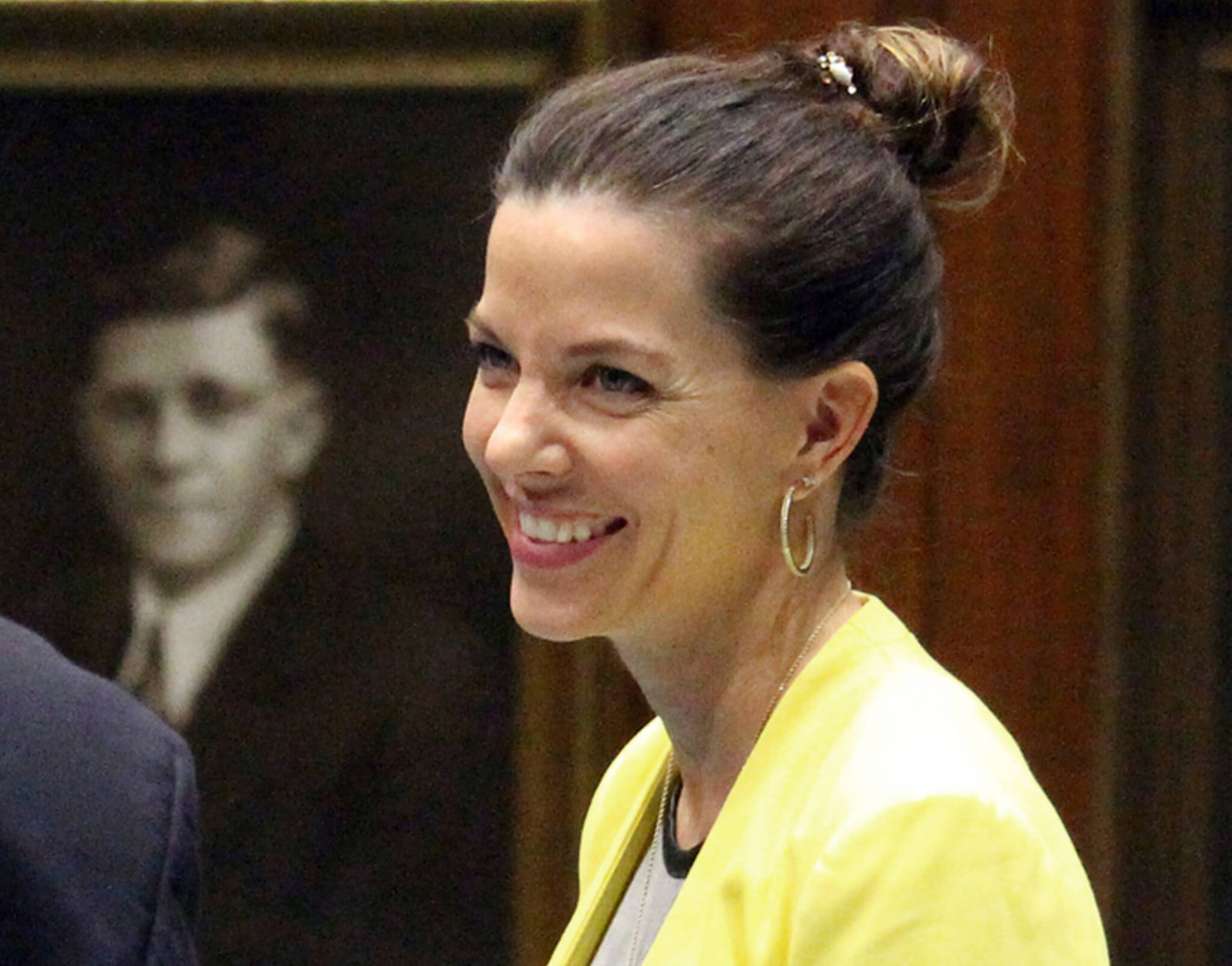
Republican state Sen. Michelle Ugenti-Rita was first elected to the Arizona legislature in 2010, serving for eight years in the House of Representatives. For the last three years, Ugenti-Rita has served in the Arizona State Senate, where she represents Scottsdale.
In 2017, Ugenti-Rita made accusations of harassment against Yuma Rep. Don Shooter, prompting several women at the Capitol to come forward with similar accusations of sexual harassment against Shooter, according to The Capitol Times. Shooter was eventually expelled from the House following a vote from his peers.
Ugenti-Rita herself has also faced controversy when she was accused of harassment and intimidation last year by a lobbyist. The lawmaker’s husband allegedly solicited the lobbyist for sex with both he and Ugenti-Rita and sent the lobbyist nude images of Ugenti-Rita, according to The Arizona Republic. An investigation into the allegations ultimately cleared Ugenti-Rita of any wrongdoing.
More recently, Ugenti-Rita has been among the Republican senators who have called for an independent audit of Maricopa County’s election results. She has since defended the Senate’s attempts to audit the election results, telling conservative network Newsmax that Democrats are “allergic to transparency.”
Earlier this legislative session, Ugenti-Rita also sponsored the controversial bill that will purge voters from the permanent early voting list, saying—without evidence—it would reduce the potential for fraud in elections.
Ugenti-Rita announced her candidacy for secretary of state last month with a joke mocking Caitlyn Jenner, according to a video posted by 12 News.
“I’m going to be transitioning … not that kind of transitioning,” Ugenti-Rita said. “I’m going to be transitioning to a higher office.”
Mark Finchem
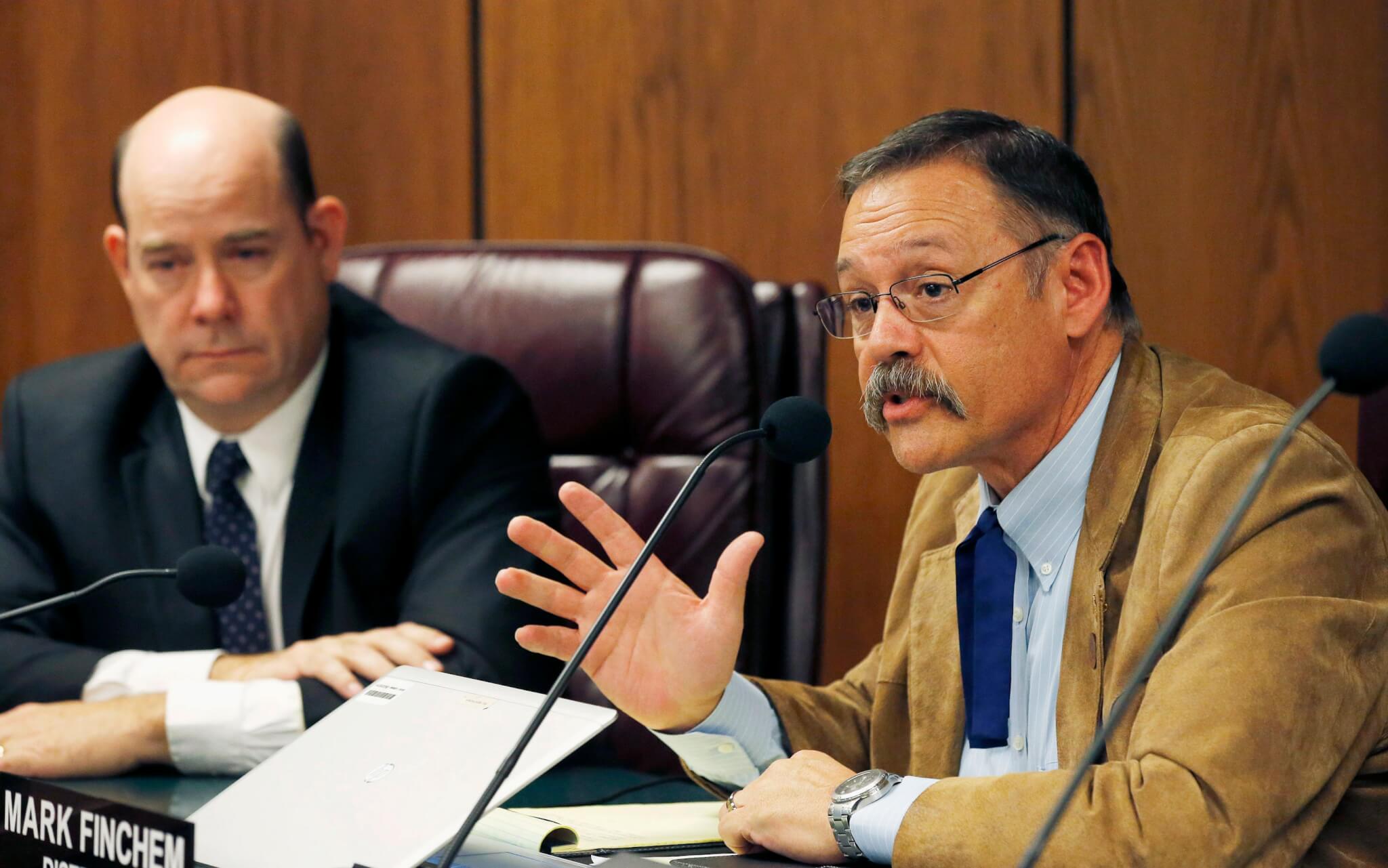
State Rep. Mark Finchem was elected to the legislature in 2014, but has more recently been one of the most prominent voices behind baseless allegations of fraud in the 2020 election.
Finchem is a former police officer and firefighter-paramedic originally from Michigan who now resides in Oro Valley, where he works as a realtor.
Finchem said last month that he is running for secretary of state to fight for “election integrity in Arizona.”
Finchem has publicly advocated for the overturning of the November election and repeatedly argued that the US Constitution gives lawmakers the power to determine who gets the state’s electoral votes. Campaign finance filings show that Finchem had been paid $6,000 by former president Donald Trump’s campaign to invalidate President Joe Biden’s win.
Finchem was also in Washington, DC, on Jan. 6 where he attended the “Stop the Steal” protest against certifying Joe Biden’s win in the 2020 presidential election.
While the US Capitol was under siege, Finchem posted a picture of the crowd to Twitter, writing, “What happens when the People feel they have been ignored and Congress refuses to acknowledge rampant fraud.”
RELATED: Losing Arizona: Is Rep. Mark Finchem an Insurrectionist?
The tweet and Finchem’s account were later deleted.
More recently, Finchem has threatened to sue a group of Arizonans who are working to oust him from office, according to the Arizona Mirror.
Finchem has also been a vocal defender of the Senate’s audit of the election results, going so far as to invite other states to visit Arizona’s audit process. “All states need to come here because insecure elections are indeed a national security threat worth fixing,” Finchem wrote on Twitter last week.

He said what? 10 things to know about RFK Jr.
The Kennedy family has long been considered “Democratic royalty.” But Robert F. Kennedy, Jr.—son of Robert F. Kennedy, who was assassinated while...

Here’s everything you need to know about this month’s Mercury retrograde
Does everything in your life feel a little more chaotic than usual? Or do you feel like misunderstandings are cropping up more frequently than they...

Arizona expects to be back at the center of election attacks. Its officials are going on offense
Republican Richer and Democrat Fontes are taking more aggressive steps than ever to rebuild trust with voters, knock down disinformation, and...

George Santos’ former treasurer running attack ads in Arizona with Dem-sounding PAC name
An unregistered, Republican-run political action committee from Texas with a deceptively Democratic name and ties to disgraced US Rep. George Santos...




